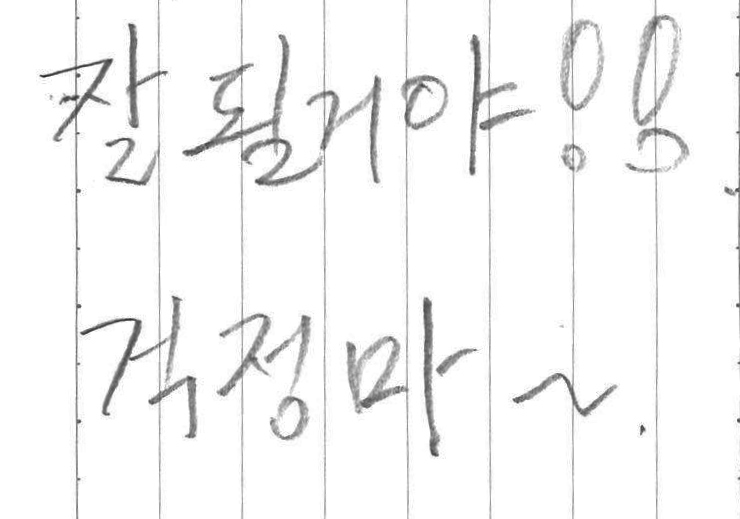Curt and I were discussing my situation and imminent departure, and all the accompanying uncertainties.
He used the phrase, 잘될거야! 걱정마~ which he helpfully wrote down for me because he knows I learn best visually.

I more or less understood it but had never tried to parse it grammatically.
잘될거야! 걱정마
jal.doel.geo.ya geok.jeong.ma
well-become-FUT-BE-FAM(?)! worry-DON’T
It’ll turn out alright. Don’t worry.
The “-야” verbal ending (not to be confused with vocative -야, which attaches to nouns) is one that I see and hear all the time, but I’ve never seen it explained in any of my grammar books. I’ve labeled it “BE-FAM” above, for “BE, familiar” – meaning it seems to be a kind of slangy version of the copula that does’t get explained in grammar books. Or maybe I’m wrong and it’s something else, but anyway, I get the meaning of it.
Later I accused him of “irrational optimism,” which he took badly, but in fact I see that as a positive trait: irrational optimism is stronger than rational optimism, because the latter is subject to sudden dissolution in the face of facts.
[daily log: walking, 7.5km; carrying heavy box to post office, 0.5km]
